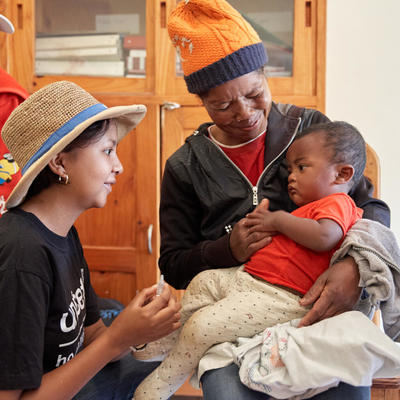
In Madagascar, the success of polio vaccination campaigns has been driven by collaboration between health authorities, community leaders, and women. Key lessons include overcoming vaccine hesitancy, engaging local leaders, and adapting strategies based on regular evaluations. These efforts are essential in achieving a polio-free future in Madagascar.
In Madagascar, the fight against polio has seen strong support from local opinion leaders who have played an essential role in mobilizing communities to accept vaccination. These leaders have been instrumental in reaching parents, addressing refusals, and ensuring widespread participation in vaccination campaigns. This effort is part of a broader initiative spearheaded by the Ministry of Public Health (MSP) and supported by global partners to eradicate polio and improve vaccination rates across the country.
Collaboration and Key Achievements in the Polio Campaigns
In 2023, the Ministry of Public Health (MSP) organized four rounds of polio vaccination campaigns (AVS), supervised by the Regional Directorate of Public Health in Analamanga, with support from partners of the Global Polio Eradication Initiative (GPEI). These rounds were crucial in engaging opinion leaders, particularly in large cities like Antananarivo, where vaccination refusals have historically been prevalent. These leaders committed to mobilizing communities, especially parents, to support the vaccination of their children against polio.
In 2024, the MSP, with the assistance of its partners, conducted three rounds of vaccination, with the final round integrated into the follow-up campaign for measles, the catch-up of zero-dose and under-vaccinated children, and routine vaccinations. To minimize vaccination refusals and maximize coverage, various behavioral and social change strategies were developed and put into action.
Main Challenge: Overcoming Refusals and Engaging Leaders
A key challenge during these campaigns was engaging community leaders to address and resolve vaccination refusals. Community leaders were tasked with addressing refusals in households, markets, churches, schools, and bus stations, but many were uncertain about how to best encourage vaccination acceptance.
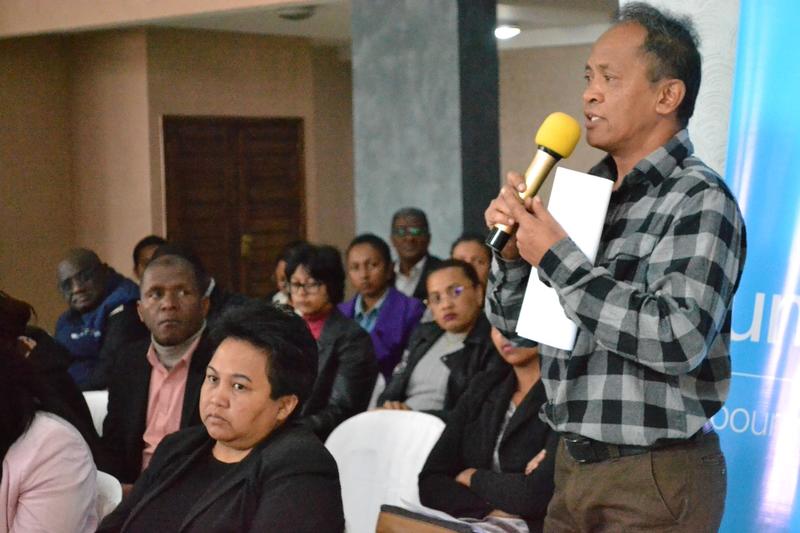
Photo: Information and exchange session with community leaders. All rights reserved.
Testimonies and Key Engagement Activities
During an information session, the Secretary-General of the Governor of the Analamanga Region shared a moving story about a mother who refused to vaccinate her children and tragically lost one to a preventable disease. This testimony served as a powerful motivator for leaders to encourage parents to vaccinate their children at every available opportunity.
Professor Noëline RAVELOMANANA, a pediatrician, conducted multiple engagement sessions with pediatricians, health workers, and community leaders, highlighting the importance of vaccination in building herd immunity and safeguarding the population from polio.
Additionally, Ms. Elisabeth TURK of FIAGONAN’T JESOSY KRISTY ETO Madagascar (FJKM) played a key role by financing the reproduction of key vaccination messages and distributing audio spots for wide-reaching outreach within her religious community and beyond.
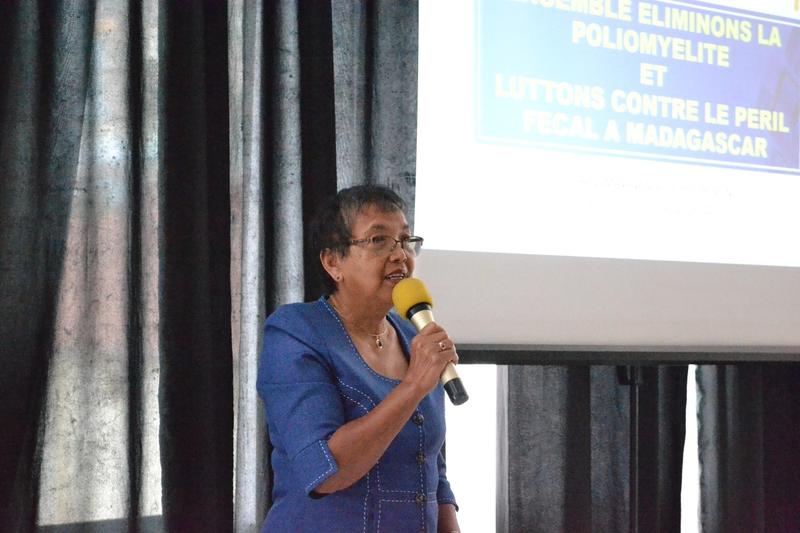
Photo: Professor Noëline Ravelomanana during an information and engagement session with leaders in Antananarivo. All rights reserved.
Engagement of Community Leaders: Key Actions and Outcomes
Community leaders across the region took responsibility for mobilizing parents for vaccination and resolving refusals during the campaigns. They signed engagement pledges with political, administrative, religious, and traditional authorities to formalize their commitment. Leaders participated in meetings where previous campaign results were shared, and co-created action plans were established to guide their efforts in engaging parents for upcoming vaccination rounds.
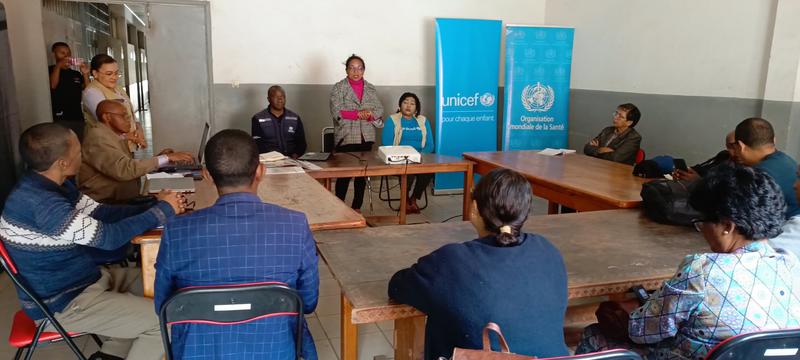
Photo: Information and exchange session with community leaders in the Analamanga region. Photo: Henriette Onakoy, STOP Consultant, UNICEF 2024.
Social and Behavioral Change for Action: Leaders as Role Models
To demonstrate their commitment to vaccination and lead by example, community leaders vaccinated their own children. This act helped reassure other parents and increased acceptance of vaccination. Leaders also played a critical role in addressing refusals in households and other key locations during each vaccination round.
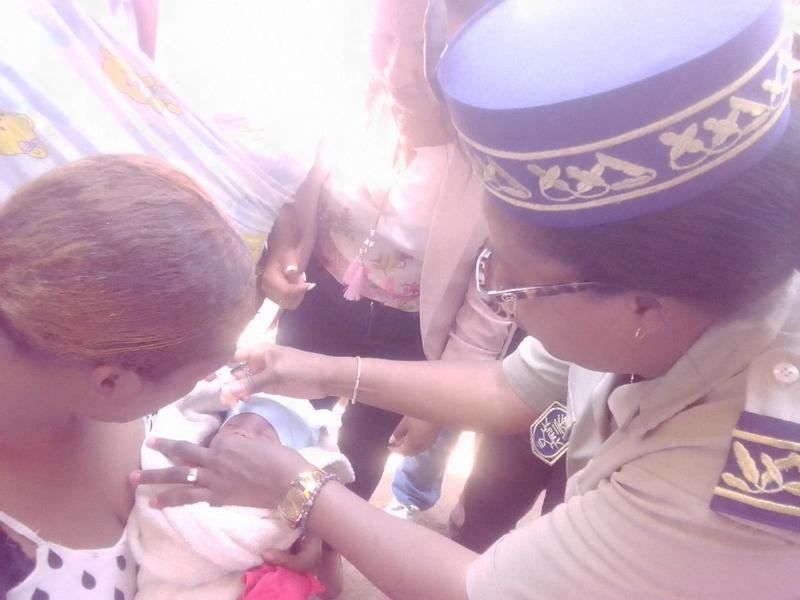
Photo: Community leaders vaccinating their own children. All rights reserved.
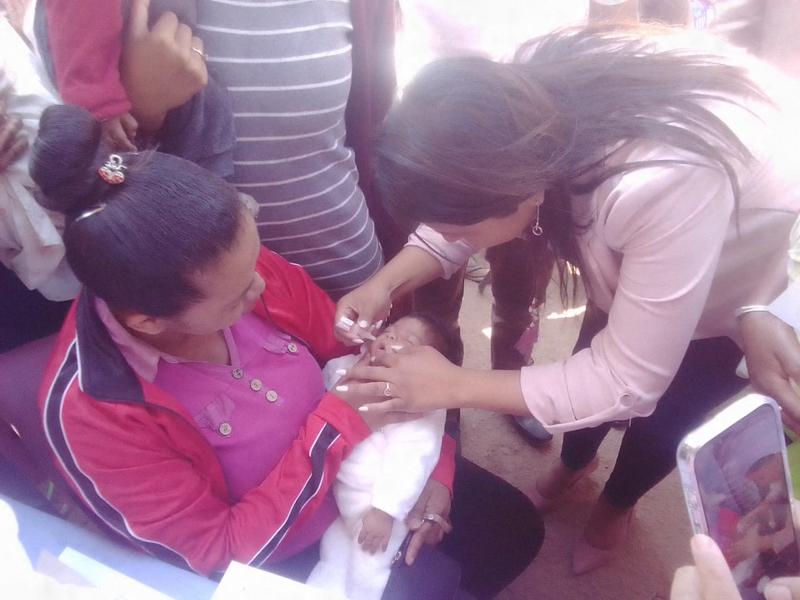
Lessons Learned and Future Directions
The polio vaccination campaigns in Madagascar provided valuable insights into the challenges and successes of community-based health initiatives. These lessons highlight the importance of local leadership and community involvement in ensuring the success of vaccination efforts.
1. Collaboration Between Health Authorities and Community Leaders
Strong collaboration between health authorities and community leaders was critical in mobilizing parents and overcoming vaccine hesitancy. By working together, these groups gained the trust of the community, ensuring effective communication and greater acceptance of vaccination.
2. Involving Women as Frontline Actors
Engaging women, particularly mothers, as frontline actors in vaccination campaigns significantly boosted acceptance. Women, as primary caregivers, were better able to convince their peers and family members about the importance of vaccination, thereby increasing vaccination rates.
3. Campaign Evaluations and Local Adaptation
Regular evaluations, involving community leaders, provided actionable insights that allowed for the adaptation of strategies to local contexts. This participatory approach ensured that barriers to vaccination, such as refusal or logistical issues, were addressed promptly, increasing the effectiveness of future campaigns.
The involvement of community leaders in Madagascar has been a pivotal factor in the success of the country’s polio vaccination campaigns. By addressing refusals and mobilizing parents, these leaders have helped ensure that more children are vaccinated, bringing Madagascar closer to the goal of polio eradication. Their continued engagement and leadership are essential in overcoming challenges and achieving long-term public health success.
Written by Henriette Onakoy, STOP SBC Polio/PEV Consultant, UNICEF Madagascar
Edited by Daria Shubina, UNICEF NY HQ Polio SBC Knowledge Management Specialist
Photo credit: © UNICEF Guinea/2024/Afiavi B Aguessy

